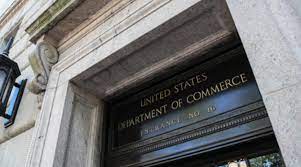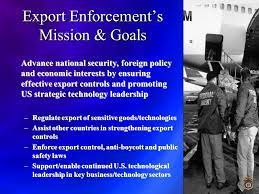An Aggressive Export Control Enforcement Program: The Department of Commerce’s Bureau of Industry and Security

My old adage – when it comes to enforcement initiatives, the government always tells you what they are going to do and then they do it. It is always baffles me when targets of enforcement actions complain that they did not know the government was going to launch an investigation or enforce the law in a particular manner.
The Justice Department is fairly transparent in this area, especially when it comes to FCPA enforcement. DOJ has made it clear how they interpret the law, and how they intend to enforce it. DOJ should be commended for its transparency.
This same approach is being adopted by the Department of Commerce’s Bureau of Industry Standards (“BIS”).
Let me provide two important data points.
Matthew Axelrod Nomination as Assistant Secretary of Office of Export Enforcement
First, President Biden nominated Matt Axelrod to serve as the Assistant Secretary of BIS’ Office of Export Enforcement. Matt is a highly-regarded former federal prosecutor I have had the honor of working with Matt. At his Senate confirmation hearing, Matt explained that his background as a federal prosecutor will ensure that he carries out his duties aggressively and fairly.
Matt Axelrod’s nomination send an important message. The Office of Export Enforcement has not had a Senate-confirmed leader for five years. This Administration intends to elevate the importance of the Office of Export Enforcement, and Matt Axelrod’s nomination sends a strong signal of its commitment. At his confirmation hearing, Matt Axelrod noted that he intends to “raise the profile of export enforcement” as a means to incentivize compliance programs and deter potential violations.

Mr. Axelrod further noted the importance of BIS’ export enforcement program as a vital national security program. In his view, large penalties and aggressive enforcement is an important way to stop U.S. adversaries from illegally exporting sensitive, dual-use, technologies.
As Mr. Axelrod stated,
“We must impose significant penalties against those who break the law, while at the same time incentivizing companies to play by the rules. That way we’re not only punishing export violators, but also deterring those violations from occurring in the first place.”
BIS Enforcement Action Against VTA Telecom
VTA Telecom is a subsidiary of a Vietnam state-owned telecom company, made a number of false statements in its export applications to disguise the true end users of the export equipment. Starting in 2016, VTA made false statements as part of its application for export licenses to Vietnam for certain “power amplifiers/JFET transistors.” This equipment is classified under the Export Administration Regulations for national security (NS), regional stability (RS) and anti-terrorism reasons (AT). VTA’s intended use of this equipment was not for civil purposes but as part of defense end uses.
BIS approved the license to ship 100 transistors and two development tools. A VTA shipment of 12 transistors and two development tools was detained by Customs and Border patrol when it requested verified end use statements. VTA provided false end use statements and Customs released the shipment.

VTA exported several additional shipments including certain actuators that were controlled for NS, RS, AT and Missile Technology (MT). VTA provided false end user statements to the manufacturer, which the vendor submitted to BIS. In another violation, VTA provided false end user statements for “mass properties instrument and related equipment,” which were controlled for NS, RS, AT and a United Nations embargo.
BIS agreed to suspend $200,000 of the $1.87 million penalty if VTA successfully completes a two-year probationary period. VTA agreed to spend $25k to improve its export compliance program and hire a trade compliance director for two years.















